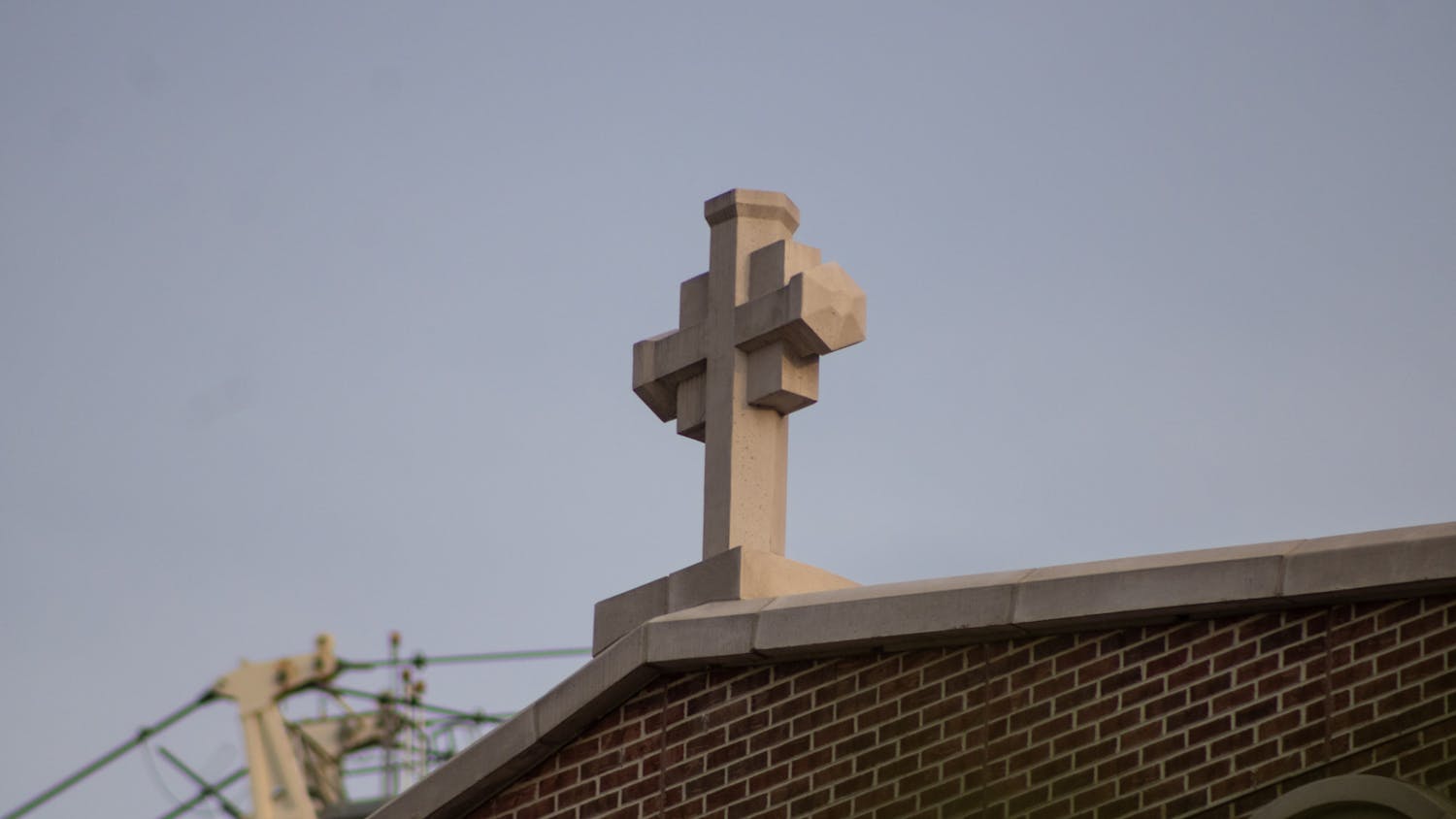In an effort to provide Americans with constant 24-hour coverage of the war in Iraq, the news media bombard us with images and stories of just about every aspect of our military. But one topic has been largely ignored: The disturbing amount of sexual assault within our troops.
These days it can be downright \unpatriotic"" to criticize the armed forces. However, it is even more dangerous to disregard their problems. The current war with Iraq involves the largest deployment of American women in history. In fact, one of seven U.S. military personnel in Iraq is female. And outside of the risks these women face fighting in a war zone, they also face potential danger lurking within their own lines.
A Defense Department survey found that, in a one-year period, 9 percent of women in the Marines and 8 percent of women in the Navy were sexually assaulted. The American Journal of Industrial Medicine reported that 28 percent of female veterans reported sexual assault during their careers.
Perhaps most disturbing is that sexual assault is so common the Pentagon's health office even has a specific name for it-Military Sexual Trauma, or MST. Victims often experience post-traumatic stress symptoms like anxiety and depression, and the Pentagon defines it as a major deployment and readiness issue.
This is hardly a new problem. During the first Persian Gulf War deployments, 24 cases of sexual assault were reported, according to the Department of Defense. In addition, witnesses at Congressional hearings in 1992 estimated that 200,000 military women have been sexual assaulted by servicemen.
Closer to home, the Air Force Academy has been working to improve its tarnished image in recent months. The bad press came after nearly five dozen women complained through their families, their lawyers and members of Congress that cadets raped and sexually assaulted them. However, when the women finally summoned the courage to come forward and report the crime, in most cases Air Force authorities either failed to investigate or punished the women for smaller infractions after they came forward.
Many military sexual assaults simply go unreported due to the lack of confidentiality, the rigid hierarchy and fear of further harassment from military commanders.
Unlike civilian cases, the military provides virtually no confidentiality for women who report assault. Any report a woman makes to a nurse, doctor, counselor or police officer within the military is supposed to be reported to a commander. Many times this leads to the victim being ridiculed or ostracized.
According to Christine Hansen of The Miles Foundation, an organization that deals with gendered violence in the military, ""Many women tell me that sexual assault is considered a rite of passage in the service, and they're treated like the black sheep of the family when they ask for accountability.""
Further, it can be detrimental if a victim reports the crime, but is at the same time admitting to an infraction of military rules such as alcohol or drug use. Such a problem arose with one cadet at the Air Force Academy who was disciplined for having sex after she reported an assault.
Many times justice is not fully pursued because, unlike civilian cases, the military cases are subject to a strict chain of command for investigation. As Women's E-news (http://www.womensenews.org) reported, this leaves commanders with an ""inherent conflict of interest; on the one hand they are responsible for seeking justice for crimes; on the other, they are bound as leaders to protect the soldier and sailors they value and to maintain good morale in their units. This can be difficult when an allegation involves an otherwise valuable or likeable serviceman.""
Some institutions have been working to correct this grave problem. For example, the Air Force Academy accusations have led to the implementation of new rules to protect women who come forward. One changes provides ""blanket amnesty"" to encourage victims to report the crime without fear of being punished for smaller infractions like drinking or inappropriate socializing. But now it is up to other branches of the military to follow the Academy's lead.
Many protesters have been labeled ""unpatriotic"" the past few weeks. But forget flag burning or anti-war marches. Harassing and assaulting the women who are fighting for our country is by far the most unpatriotic act possible. When a man sexually assaults a military woman, regardless of the uniform he wears, it is a dishonor to the individual women, to all female servicewomen and to our country as a whole.
These assaults are against women who bravely left their family and friends to risk their lives for a cause they believe in. And how are they repaid? By being coerced to keep the crimes a secret.
Denying these women the respect and justice they deserve is truly an unpatriotic act.





